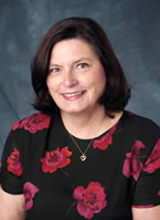
Winter Edition
![]()
Blast
from Past:
Interview of
Barbara
Wallace
Blast
from Past:
Report from
Early Stages
of Arthur
Levine's
TC
Restructuring
Reprise
KATESOL
2006:
Kathy Escamilla
Keynote
Reprise:
Report from
the 1st ever
TESOL Peace
Forum
Sociocultural
Study of
Rock-Picture
Writing
Decision-Making
Skills and
Self-Efficacy
SEE INAUGURAL
EDITION FROM
SUMMER 2020
editor@
Information:
multilingual
adaptive.net
![]()

Reprint from ESL MiniConference:
Kathy Escamilla's KATESOL 2006 Keynote!
At some professional conferences, especially in a
field like ESL and second language learning,
everything feels as if it is being experienced from
within a puffy cloud floating along far above the
ground, removed from reality, existing in a festival
of peace and love in a place without war, terror, or
racism.
But things were decidedly different from the norm at
KATESOL/BE 2006, the 24th annual conference of the
Kansas TESOL and NABE affiliate, hosted by Conference
Chair Dr. Socorro Herrera and the Center for
Intercultural and Multilingual Advocacy (CIMA Center)
at Kansas State University's College of Education.
There wasn't snow on the ground, but the early
February air was brisk and the information being
shared with a record-setting 500 KATESOL
Current ESL programs at too many schools, Escamilla
said, feature "quick fixes, short term solutions,
magic methods, and finding someone to blame for our
lack of success."
What is needed, she continued, is "a comprehensive
plan, resistance to the 'quick fix' mentality, making
a long-term commitment," and teachers insisting on "a
chance to demonstrate our heart and passion."
"Learning a second language," explained Escamilla, "is
more than labels like NEP, LEP, FEP, and ELL...it's
more than just 30 SIOP categories...not only a score
on LAS, Woodcock-Munoz or the next new
assessment...beyond BICS and CALP and pragmatics...and
doesn't equal a high stakes test score."
Teachers of culturally and linguistically diverse
students, according to Escamilla, need sheltered ESL
techniques, training in the teaching of literacy to
second language learners, help closing the gap between
ESL students and all others, and, especially, "an
awareness of the emotional and psychological needs of
ELLs."
She touched nerves in an audience of caring, devoted
ESL teachers from across the state of Kansas when she
used data from a 2003 University of Chicago Survey
that showed most Americans consider Mexican-Americans,
Cuban-Americans, and Puerto Ricans as the most
dangerous ethnic group. As some of the reasons given
by respondents in that survey, she listed the notions
that Latinos are "unpatriotic, lazy, not family
oriented, and not religious."
Quoting Yzaguirre, Dr. Escamilla said, "The gap
between perception of Latino cultures and the reality
of the Latinos is wider than the perceived gap in
academic achievement."
According to Kathy Escamilla, Hispanic/Latino children
in American schools today receive subtle--and not so
subtle--messages that are reinforced in the media and
U.S. culture at large, as well as from both inside and
outside the cultural group itself. The first message
is feeling devalued. The second message is feeling you
don't belong. She quoted a song by Juan Gabriel, from
an album, "El Mexico Que Se Nos Fue." In his "Cancion
a 187," Juan Gabriel sings "Cuando fui para el norte,
fui para estar mejor, siempre en busca de trabajo pero
una disilusion....Adios gringos peleoneros....ellos
creen que dios es blanco, pero es mas moreno que yo."
She quoted another group, Los Tigres del Norte, from
their album "Gracias America." In a song titled "El
Mojado Acaudalado," the group sings, "Adios estados
unidos...aunque tengo dinero, no soy feliz donde
estoy....Adios les dice el mojado que se empapo de
sudor...en los campos de Arizona, fabricas de Nueva
York....En mi tierra quiero morir."
A third message that school-age children of Latino
families experience, according to Escamilla, is
"feeling ashamed of your language and heritage." She
explained, "Forcing children to learn English at the
expense of their L1 places them at an emotional
cross-roads between their friends and family and
school, even if this is done unintentionally."
She quoted Jim Cummins: "80 percent of the second
language learners who begin U.S. schools in
kindergarten or first grade will have lost their
productive ability in their first language by the time
they are in high school."
The psychological effects of these three messages that
permeate the experiences of Latino children, explained
Dr. Escamilla, "are long lasting, cannot be fixed with
new methods, and cause children to tolerate language
learning but NOT embrace it."
"Shouldn't we make sure our students learn to love and
value BOTH of their languages?," asked Escamilla.
"Shouldn't we make learning English a positive
psychological and emotional experience? Shouldn't we
make all children feel like they belong?"
Even beyond the emotional trauma caused by those three
messages, continued Escamilla in her keynote, is "the
most insidious psychological damage to second language
learners that is caused by the current high-stakes
testing environment in the U.S."
She quoted Valdes and Figueroa (1994): "When a
bilingual individual confronts a monolingual
test...both the test taker and the test are asked to
do something that they cannot. The bilingual test
taker cannot perform like a monolingual and the
monolingual test cannot measure the other other
language."
Dr. Escamilla asked the 500 educators and invited
guests in the audience at Friday's opening ceremony to
consider her suggestion that "children will likely NOT
remember the methods used to teach them English, even
if they were effective, BUT they WILL remember the
children who made fun of them, the principal who told
them not to speak Spanish on the playground, and the
teacher who told them not to hang around other kids
who speak Spanish."
"Which voice do we want them to hear?," asked
Escamilla. "The one that puts them down, or the one
that stimulates them and lifts them up?"
She ended her keynote with a quote from Paolo Freire:
"Washing one's hands of the conflict between the
powerless and the powerful does NOT mean you are
neutral, it means you are taking the side of the
powerful."
2021 The Multilingual Adaptive Systems Newsletter
 conference-goers inside the K-State Student Union was
bracing in its clarity. "I've been to too many
feel-good ESL events," said Dr. Kathy Escamilla, in
her keynote at Friday's opening ceremony. "I want to
talk about the important personal advocacy that must
be part of the job for every ESL teacher."
conference-goers inside the K-State Student Union was
bracing in its clarity. "I've been to too many
feel-good ESL events," said Dr. Kathy Escamilla, in
her keynote at Friday's opening ceremony. "I want to
talk about the important personal advocacy that must
be part of the job for every ESL teacher."
Original report by Robb Scott appeared in summer 2006 edition of ESL MiniConference Online
editor@multilingualadaptive.net
